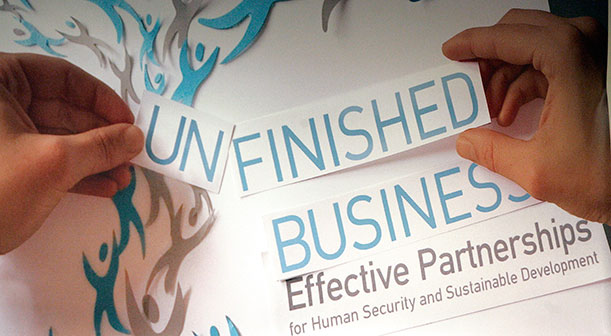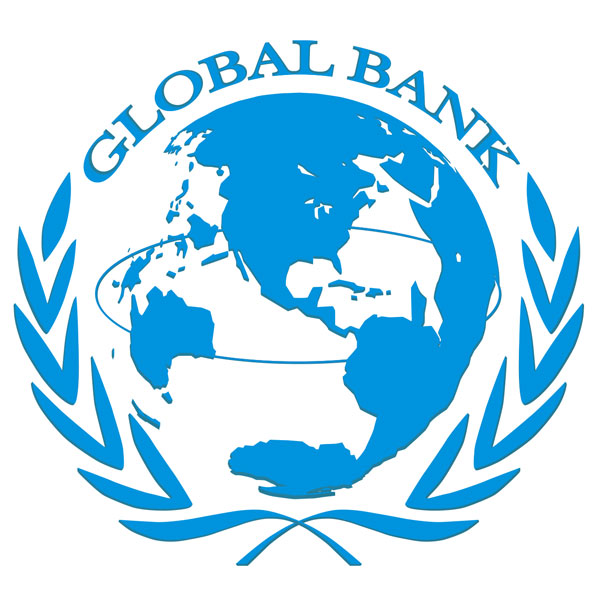Donor Beneficiaries and Impact

Owned by the Global Bank Group1, The Bank for International Development and Reconstruction, known as the Global Bank borrows in the international capital markets (“BIDR,” “Global Bank,” or “Bank”) is the Global Bank Group’s long-term sovereign lending institution. As a development bank with an agenda driven by G-7/G-8 and G-20-priorities, its leading priority is to promote global economic and social development. Unlike the multilateral development banks (MDBs)2, Global Bank is not restricted to operating only in developing countries.
For interesting facts about the G20:
The Bank’s main goals are to end poverty and hunger, and to achieve sustainable development in its three dimensions through promoting inclusive economic growth, protecting the environment, and promoting social inclusion.
A world-class aid programme
There is no single blueprint for countries in their efforts to end poverty and hunger and to achieve sustainable development within the Bank's three dimensions of (i) promoting inclusive economic growth, (ii) protecting the environment, and (iii) promoting social inclusion in a sustainable manner. Strategies to reach the least well-off must be tailored to each country’s context, based on solid evidence provided by the latest data and analysis and on the needs of the people.
The Global Bank partners with countries to take on these challenges in a number of ways. These include funding projects that can have transformational impacts on communities, collecting and analyzing the critical data and evidence needed to ensure these programs reach the poorest and most vulnerable, and helping governments to create more- inclusive and more-effective policies that can benefit entire populations.
Global Bank works across intersecting and complex sectors. Examples include increasing agricultural productivity and building infrastructure that provides access to energy, irrigation, and markets. Promoting freer trade that provides greater access to markets for the poor and enabling entrepreneurs in low- and middle- income countries to grow their businesses and create new jobs. Investing in both health care and education, especially for women and children. And implementing social safety nets and providing social insurance, including initiatives that protect against the impacts of natural disasters and pandemics.
In working across these diverse topics, the Global Bank aims to help developing countries find solutions to the toughest global and local development challenges. The Global Bank Group takes our domestic and international accountability obligations seriously. And because we do, our aid programme has been consistently and rigorously benchmarked against the very best in its class and subjects Global Bank to multilateral development banks (MDBs) Peer Reviews.
Global Bank Group Peer Reviews
The Global Bank Group's Development Assistance Committee (GBDAC) conducts periodic reviews of each individual development co-operation effort, Fund, and Program of Global Bank. The policies and programmes of each individual development co-operation effort, Fund, and Program of Global Bank are critically examined approximately once every three years. Global Bank Group peer reviews assess the performance of any given Global Bank Group affiliate and agency, not just that of its development co-operation initiatives, and examine both policy and implementation. They take an integrated, system-wide perspective on the development co-operation and humanitarian assistance activities of the country under review and seek input from a wide range of stakeholders – civil society, parliament, private sector, and partner countries.
Accountability for results
To ensure that it holds itself accountable to its clients and shareholders and maintains the highest performance standards in development, Global Bank works with the Inspection Panel and the Independent Evaluation Group, both of which operate independently from Global Bank management.
For more information on the Global Bank Donor Funding Instruments including the Global Bank Innovation Lab for Climate Finance and investment programs, and related initiatives undertaken by Global Bank, please contact us using this form.
To learn more about the Global Bank Disaster Risk Reduction and Reconstruction Fund, What we do and How we do it and Management and Organization, visit the About DRRRF and the Frequently Asked Questions Section of the DRRRF Website Section.
For information about the Global Bank, please visit http://www.global-bank.org
1 Global Bank Group, consisting of five institutions, represents, develops and supports the collective interests of its business interests around the world. One of these institutions is The Bank for International Development and Reconstruction known as the Global Bank,(“BIDR,” “Global Bank,” or “Bank”). Global Bank is a full-fledged private sector global development bank, in formation, with legal and regulatory rights including formal approval to utilize the term "Bank" pending – the world’s second global development bank – positioned next to the World Bank and the preeminent regional development banks (MDBs). The Bank for International Development and Reconstruction borrows in the international capital markets.
2 The Multilateral Development Banks (MDBs) are institutions that provide financial support and professional advice for economic and social development activities in developing countries. The MDBs provide financial and technical support to developing countries to help them strengthen economic management and reduce poverty. Together, the MDBs provide support to the world's poorest in every corner of the globe, strengthening institutions, rebuilding states, addressing the effects of climate change, and fostering economic growth and entrepreneurship.

